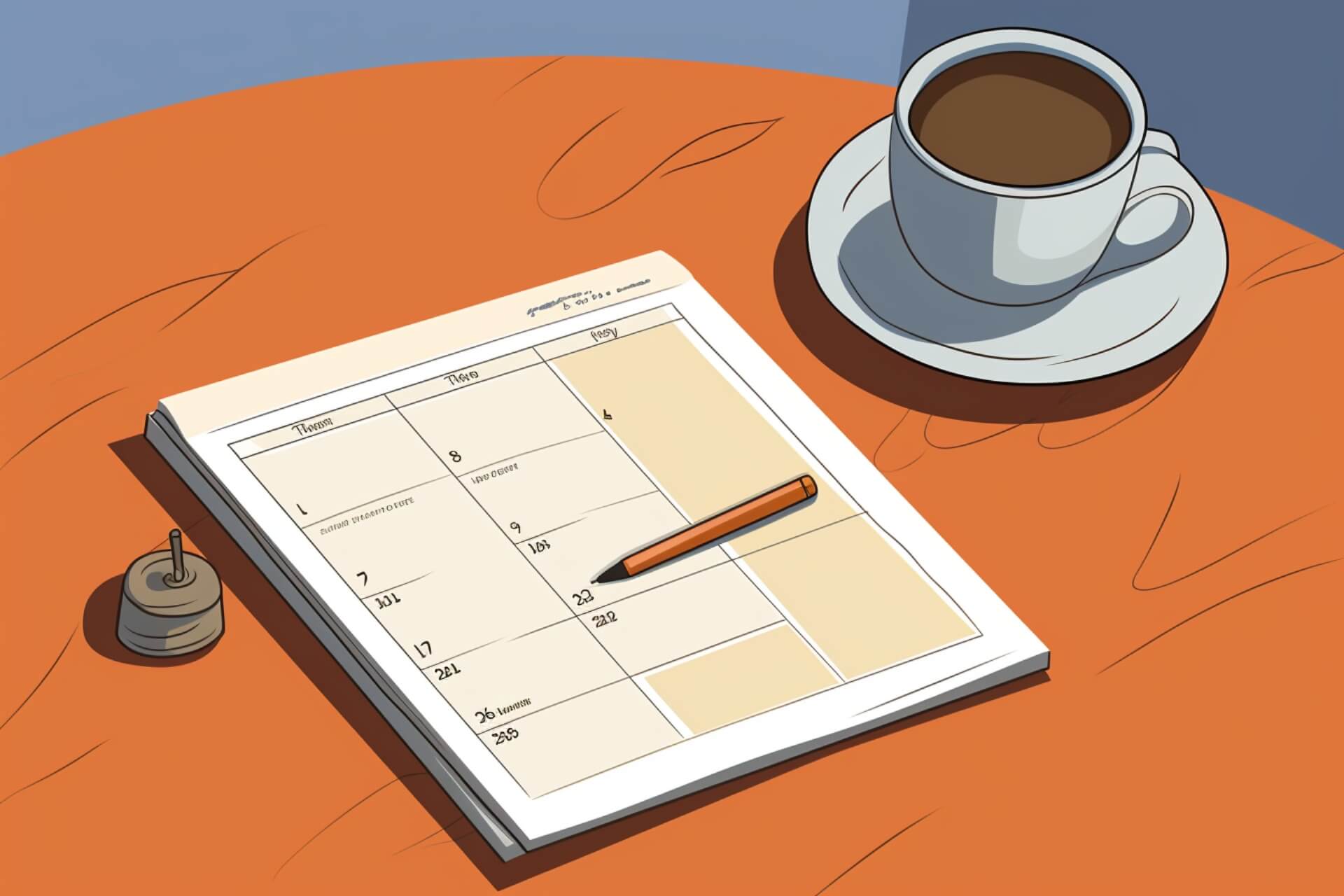How to Manage Your Time Wisely: 8 Tips Anyone Can Try
Nov 10, 2023

As an Amazon Associate, Modded gets commissions for purchases made through links in this post.
Keeping track of the clock can be challenging. It isn’t always easy to juggle your responsibilities and reach every deadline. It’s a skill everyone learns with practice. Read this guide to learn how to manage your time wisely and finally get ahead of your responsibilities.
1. Identify Your Distractions
Imagine clocking into work. When you open your calendar, you know what you need to accomplish before heading home for the night. Although you intend to finish your tasks, it may not work out that way.
Consider which distractions most easily tear your focus away. Whether it’s a short or long list, write them down. It’s easier to notice them after naming them. Your list might look like this:
- Browsing social media apps
- Texting friends
- Worrying about things other than what I’m doing
- Procrastinating
- Getting sleepy
The list doesn’t mean you’re good or bad at what you do. It just includes essential data points that guide you toward more effective solutions. It’s an important first step in learning how to manage your time wisely.

2. Create a To-Do List
The average worker spends 51% of their time on tasks with little to no value. Some of those tasks may be the distractions you added to your list. Others could be menial things that aren’t as important as other tasks.
Give yourself a helpful time management tool by using a to-do list every day. Include everything you need to do during the day, whether the responsibilities are big or small. You could use a physical list that organizes your notes or an app on your phone. Try both if you’re unsure which works best for your brain.
3. Tackle the Biggest Responsibilities First
Once everything is on your to-do list, consider which is most important. You might want to finish that presentation you’re doing in a month, but there’s a deadline today for turning in a spreadsheet with an updated cost-benefit analysis.
The spreadsheet’s deadline is more pressing and the work may feel more overwhelming. That’s a good indication you should start with that task. Once you finish your most intimidating task, the rest of your to-do list will feel easy to manage.
If you struggle with that big responsibility, don’t forget to ask for help. People often avoid asking for assistance because they think it demonstrates weakness, but it’s a healthy sign that you know yourself. Getting help is a learning opportunity. Keeping your mind open is an excellent way to manage your time more effectively and develop your interpersonal skills.
4. Keep a Calendar
Managing a to-do list is helpful for time management experts, but they also maintain calendars. It’s easier to sort through tasks by deadlines if you know what’s coming up in your next week or month.
Download a few calendar apps to see if you enjoy their virtual layout. You could also find a planner that organizes your schedule according to weeks or months. Some people also use both. It depends on what you naturally enjoy and want to use long-term.
5. Set Daily Reminders
You could start your day with the best intentions and still need to catch up on your schedule. You might get lost in the day’s distractions, even with a planner and a to-do list. Reminders solve this problem by tugging your attention back to what you need to accomplish.
Look into various apps that set either alarms or timed reminder notifications. When that notification sound dings or your phone vibrates, you’ll instantly check it and remember what you need to do. Consider setting reminders for big and little responsibilities, like:
- Checking your inbox
- Taking a five-minute break
- Drinking some water
- Reviewing notes before a meeting
- Organizing your calendar before leaving work for the day
As you get used to your timed reminders, they’ll become habits. You may need fewer reminders throughout your month once you get into a routine that manages your time more effectively.

6. Practice Saying No
People who accept additional responsibilities often have the best intentions. You might want to genuinely help your team members, friends or family, but you don’t have endless energy.
Evaluate what you can realistically accomplish during the day without feeling overwhelmed. If someone asks you to take on an optional responsibility, politely decline. Saying no reserves your time and energy. It’s also an incredible tool to regain the mental wellness you need to feel in control of your time.
Recent research found 79% of employees felt work-related stress in the last month. The same results showed employees feeling emotionally exhausted, cognitively tired and physically fatigued due to their stress.
You won’t have the energy to learn time management skills if you feel physically and mentally burnt out. Delegate responsibilities and try saying no if someone asks you to assume a new task when you’re too busy. You’ll gain more clarity and energy, resulting in better time management.
7. Do One Thing at a Time
Multitasking is a great skill, but it doesn’t always help. Doing too many things simultaneously could result in wasted time. You might feel like you’re scrambling between responsibilities and producing results that don’t reflect your skills.
Avoid multitasking for one day as you figure out how to manage your time wisely. Your to-do list and calendar organization should keep you on track while you do one thing at a time. You can slowly resume multitasking when you feel more in control of your schedule. You’ll discover a better balance because you’re confident in handling your responsibilities.
8. Help Yourself Focus
If you feel like focusing is your biggest challenge, give yourself helpful tools. You don’t have to cross your fingers and hope that each day is magically easier on your focus. Instead, listen to a calming playlist with background noise that doesn’t contain lyrics or voices.
White noise sustains people’s attention while making them more accurate in their work. You might enjoy listening to rain sounds while you work or movie soundtracks. Explore the world of focusing playlists to find something relaxing.
You could also wear noise-blocking headphones when you need to focus. Even if you only listen to your heartbeat while wearing them, the headphones could prevent you from getting distracted by external sounds.
Whenever possible, consider changing your environment. You could try working from the office kitchen, another room in your home, a coffee shop or a library. The change in scenery also changes your external distractions. See if it’s the simple trick your brain needs to keep up with your schedule for the day.

Learn How to Manage Your Time Wisely
Anyone can try these tips if they want to learn how to manage their time. The smallest efforts produce the greatest results. See which of these strategies might be the simple change you need to get in control of your time. You’ll keep up with your responsibilities, find a better balance for your mental health and become a happier person by easily conquering your schedule.





